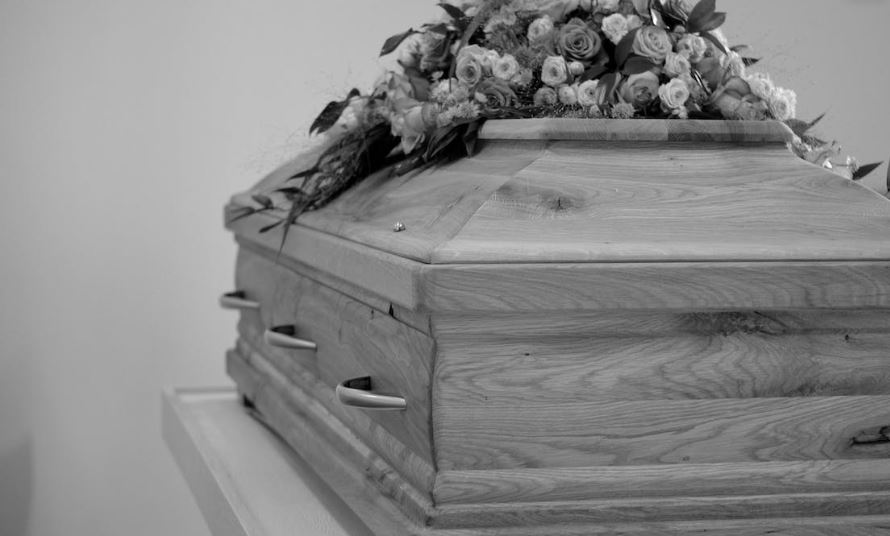What No One Tells You About Grief

Misconceptions About Grieving
July 22, 2019
The Holidays After a Death
August 5, 2019Everyone experiences grief, but everyone also experiences it differently. Death and loss and the feelings that occur are subjects that are not often discussed. As a result many people find themselves surprised by how complicated the process of grief really is. Here are some thoughts that people shared about what surprised them the most during the grieving process, or what they wish someone had told them.
One individual shared that what caught them off-guard was: “the deep, deep longing and wanting for the physical presence of the person lost. How that deep longing became a physical ache. How badly that hurt both emotionally and physically.
How the waves become less frequent over time, but no less intense and often unexpected when they hit. And that they will still hit you, even years later.”
Another person also wrote about those “waves” of grief, saying: “Two things surprised me most – how grief comes in waves, and how quickly and strongly those waves can hit, even decades later. For example, I’ll think of a question that I want to ask my dad, or I’ll hear a song that reminds me of my best friend, and I can’t do or talk to either. Even our new cat doing something that our previous cat used to do – bam, wave of grief hits with similar force.”
Others shared that they found a disconnect between the fact that life still goes on, even after a death, even though it feels like everything should stop: “All I want is to crawl under the covers and hide, but bills still need to be paid, laundry still needs to be washed, errands still need to be run. All around you the world keeps rushing around and everything is the same, even though NOTHING feels the same.”
One person wrote that they learned that it is okay to celebrate a life, even as you grieve a death. “I had a brain aneurysm rupture and near death experience in 2016 at age 37. Coming from that perspective, I realized that many of our loved ones probably very much want us to ‘celebrate their life’ when they pass on and would be very disappointed at the amount of grief and unhappiness surrounding their deaths. I would want my family to remember all the good times and be happy we had them, there is no pain or fear left, that also seems like a reason to be happy, I have a really hard time reconciling all of it now.”
Pain & loss can affect people very differently, and coping mechanisms can vary greatly from one person to the next. One grieving mother wrote: “I was surprised by how very, very differently my husband and I processed grief. Also by the fact that it seems to turn on and off; fine one minute and hits hard the next out of the blue… It’s hard, & I think it moves you apart. You have to give each other space but I think many times it is difficult to understand one another’s journey. You need time and patience for each other.”
What can also be difficult is the conflicting emotions that can occur simultaneously, and how disorienting that can be: “Sometimes grief can feel like relief. The conflicting feelings of sadness and happiness that their suffering had ended can be tough to accept. Additionally, those in the caregiver role may feel happiness that they can finally sleep again or have some sort of life again because they were beyond burned out. Yet that feeling then makes them feel so incredibly awful because ’what kind of person is happy a child/spouse/parent has died?’ It is very confusing feeling like the worst person for being relieved while also feeling that crushing loss and desire to continue the caregiver responsibilities just to have them back for more time.”
Another person wrote in depth about the myriad emotions she experienced, “(I was surprised) that grief comes in so many different forms. I took care of my mother, in home, 24/7/365 for the last 15 years until she recently passed away. There were sooo many points of grief…
The shock when her conditioned changed rapidly as she neared death. The shock that borders on trauma at just how brutal death actually is.
Stopping the paper service while she was still alive, but could no longer read it….and getting it the last few times. You set it aside, just in case…and then throwing it away.
When they removed the body….was so final.
The 101 memories of times I wished I had done things differently…had spent more time with her…or the 101 things I wish I had asked her….the guilt that plagues you.
The emptiness, after having had my daily routine so wrapped around hers…or just how utterly lost you feel.
And the bittersweet of it all. I used to look forward to life after caring for her…and now I have it, it’s so empty and meaningless.
The “I” was in relation to her, and to how I cared for her….and now I have no context.
And happiness, contentment, satisfaction…a job well done, I kept my word, my mom died as she wanted, in her home surrounded by love…I handled it ALL through the cremation, the funeral, my difficult family members, sprinkling the ashes. Everyone said I would have made my mom proud…and while yes, I’m sure it would have…but even the ok-ness I feel feels sooo wrong.
That ALL your feelings are there simultaneously and NOTHING is the same, and nothing is as you anticipated it to be.”
While many people find themselves overwhelmed by emotion, the opposite may occur as well. One person shared that they were surprised that they felt nothing, and wish they knew at the time that such a reaction is normal. “…not feeling much of anything for a day or two. I know now that that’s not unusual, but the first time it happened, I was 13, and I thought something was wrong with me.”
More than one individual wrote that they were surprised at the depth of grief they experienced over something other than a death. The ending of a dream, or a relationship, or even an old lifestyle can be very difficult to accept. “I’ve learned that you can grieve someone who’s still very much alive. Either circumstances force you to cut them out of your life, you’ve outgrown them, or they’ve outgrown you. It’s so painful and I never expected to learn that in this stage.”
Grief also doesn’t have an expiration date or a set time-frame. “I’ve found recently that grief never truly stops… as a memory triggers that sadness in a person for his or herself or triggers it in you for someone else. That grief may not be what you really lost but what was never in a relationship (that you desired).”
Another person wrote: “It surprised me that everyone else seemed to have an idea that I could only grieve for a certain amount of time and after that I must be “over it” and move on. Like no, people. Just NO.”
Many different people, many different emotions. While grief and loss may be a common experience, how each of us reacts to that experience is uniquely our own.
When going through a time of grief it is important to allow ourselves time to adjust to the new reality. It’s okay to not be okay. It’s okay to feel everything. It’s okay to feel nothing. It’s okay to feel just as sad twenty years later as you did the day your loved one died. There is no one “right way” to process such a loss. What’s important is that we find a way to hold our loved ones in our heart as we continue the path to healing.
Jennifer Roberts Bittner
Funeral Celebrant/ Life Tribute Specialist
Morrissett Funeral and Cremation Service
6500 Iron Bridge Rd.
Chesterfield, VA 23234 (804) 275-7828
Serving the Richmond area since 1870



